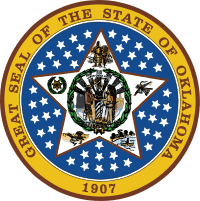 With sobriety checkpoints, DUI felonies, and mandatory ignition interlock installation for most drunk driving offenders, Oklahoma is tough on their drunk drivers. However, the state had 220 drunk driving-related fatalities in 2011, making up 32 percent of total traffic deaths that year. That same year, the state enacted the Erin Swezey Act, an ignition interlock law created in the memory of 20-year-old Erin Swezey, who was killed by a drunk driver in 2009, and in an effort to reduce drunk driving-related deaths.
With sobriety checkpoints, DUI felonies, and mandatory ignition interlock installation for most drunk driving offenders, Oklahoma is tough on their drunk drivers. However, the state had 220 drunk driving-related fatalities in 2011, making up 32 percent of total traffic deaths that year. That same year, the state enacted the Erin Swezey Act, an ignition interlock law created in the memory of 20-year-old Erin Swezey, who was killed by a drunk driver in 2009, and in an effort to reduce drunk driving-related deaths.
DUI Laws
Anyone who operates a vehicle with a blood alcohol concentration (BAC) of 0.08 or higher in Oklahoma is charged with driving under the influence (DUI). A first offense is a misdemeanor while all repeat offenses, or those occurring within 10 years of a prior offense, are felonies. Consequences can include a fine, jail time, driver’s license suspension, community service, and participation in an alcohol assessment/evaluation and, if needed, treatment program.
- 1st Conviction: up to $1,000 fine; 10 days to 1 year in prison; 30-day license suspension
- 2nd Conviction: up to $2,500 fine; 1 to 5 years in prison; 6-month license suspension
- 3rd Conviction: up to $5,000 fine; 1 to 10 years in jail; 12-month license suspension; 240 hours community service
- 4th and Subsequent Convictions: up to $5,000 fine; 1 to 20 years in jail; 12-month license suspension; 480 hours community service
Consequences increase if the drunk driver committed the offense while a child under the age of 18 was in the vehicle or if the offense resulted in the death of another person.
Ignition Interlock Laws
First-time offenders with a BAC of 0.15 or higher and all repeat offenders are required to install an ignition interlock device in their vehicles. Offenders must keep the device installed for 18 months after a first offense, 4 years after a second offense, and 5 years after third and subsequent offenses.
